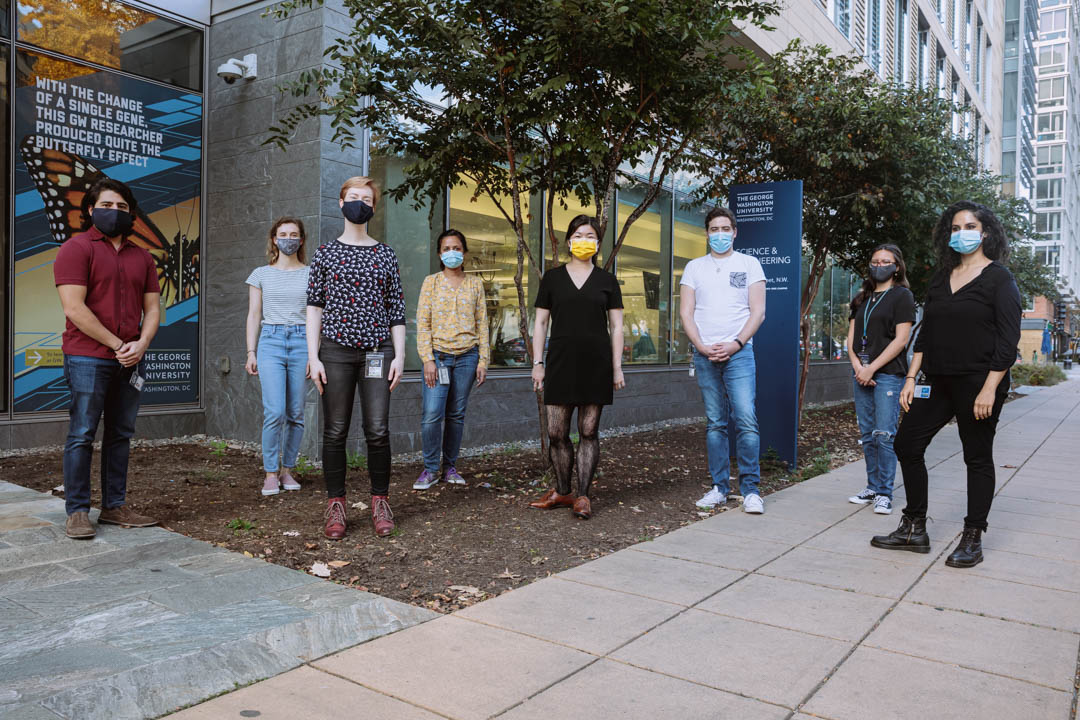By Kristen Mitchell
The global pandemic caused by COVID-19 will be among the most serious challenges President-elect Joe Biden will face when he takes office in January. More than 250,000 Americans have died from the virus, and cases are on the rise as we approach winter.
Jeffrey Levi, a professor of health policy and management at the Milken Institute School of Public Health, spoke with GW Today about what steps the Biden administration should take to address the pandemic, and the role the federal government should play in the public health response moving forward. Dr. Levi chaired the Advisory Group on Prevention, Health Promotion and Integrative and Public Health during President Barack Obama’s administration.
Here’s what he had to say:
Q: What steps should President-elect Biden take to address COVID-19 on his first day in office?
A: Unfortunately, the nation is in such a deep crisis associated with COVID-19 that the president-elect can’t wait until Jan. 20 to take important steps. While he has no direct authority, he does have a bully pulpit. He has begun—and should continue—to speak to the American people and to governors and mayors across the country about the need to take immediate mitigation steps: most importantly, universal use of masks and limiting group gatherings. He will also, most likely, begin negotiations with Congress on a package of emergency relief measures to address the critical resource needs around public health, testing capacity, vaccine distribution, state and local budget deficits and supporting individuals, businesses, schools and others who have been affected financially due to the pandemic. Once in office, he will need to provide new leadership for the White House COVID Task Force and for the Centers for Disease Control and Prevention, to establish the federal government, once again, as a credible voice on the science and public health of this pandemic. He will surely rejoin the WHO and become part of the international community’s response to the pandemic.
Q: So far, many COVID-19 restrictions have been determined at the state level. Do you expect that to continue under the Biden administration, or should we expect to see the federal government take a more active role?
A: States have the direct authority to regulate public health in the U.S. That said, the federal government plays a vital role in providing scientific leadership to the country. I would expect a Biden administration to provide evidence-based and consistent guidance to states and localities about the best measures to take to address the pandemic. I would also see the federal government stepping in to assure that all jurisdictions have adequate testing capacity, sufficient personal protective equipment for health care workers, resources to make schools safe for reopening, among many other things. I would also expect immediate attention to be paid to building the nation’s capacity to distribute a vaccine rapidly and fairly across the country.
Q: We recently heard positive news about the development of a COVID-19 vaccine. What should the Biden administration prioritize as vaccine candidates inch toward widespread distribution?
A: The key challenges associated with the vaccine will be developing a fair system for prioritizing populations who get vaccinated before a sufficient supply is available for everyone, ensuring we have a viable distribution system in the country and considering our international responsibility to make vaccines available across the globe, not just in the U.S.
Q: How do you think the pandemic is changing the conversation about the Affordable Care Act and its future going forward?
A: The pandemic has clarified even more the importance of the ACA’s protections. Without that safety net, the crisis faced by individuals and the health system would have been so much worse. But it has also pointed out the gaps in the ACA. Most notably, those who live in states that adopted Medicaid expansion have had more protections than those who don’t. The new administration, at a minimum, is going to have to address this big gap in the ACA’s reach.
Q: With control of the new Senate hinging on Georgia's runoff races, where do you think Democrats and Republicans might be able to find common ground to pass COVID-19 legislation?
A: It should be in both parties’ interest to provide relief to those individuals and communities that have been hard hit by the pandemic—which now is the entire nation. But that hasn’t been the case prior to the presidential election: The Republicans in the Senate refused to take up any meaningful legislation. I hope that now that there is even more focus on the Senate in this special election, both parties will be motivated to show what Congress can do in a crisis.





